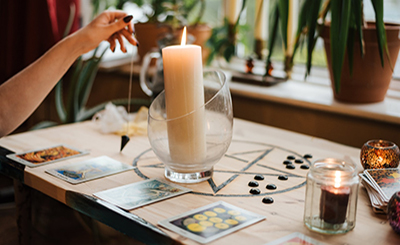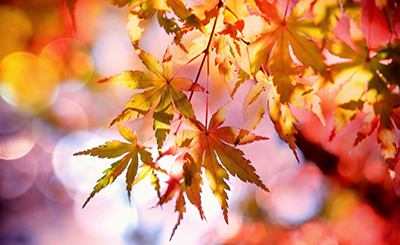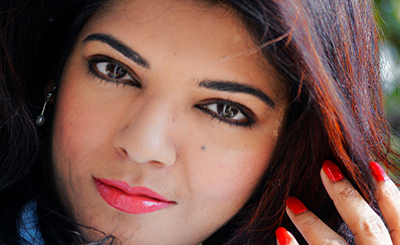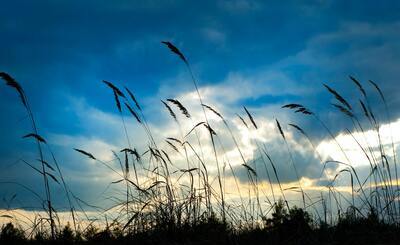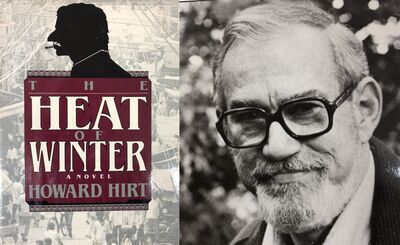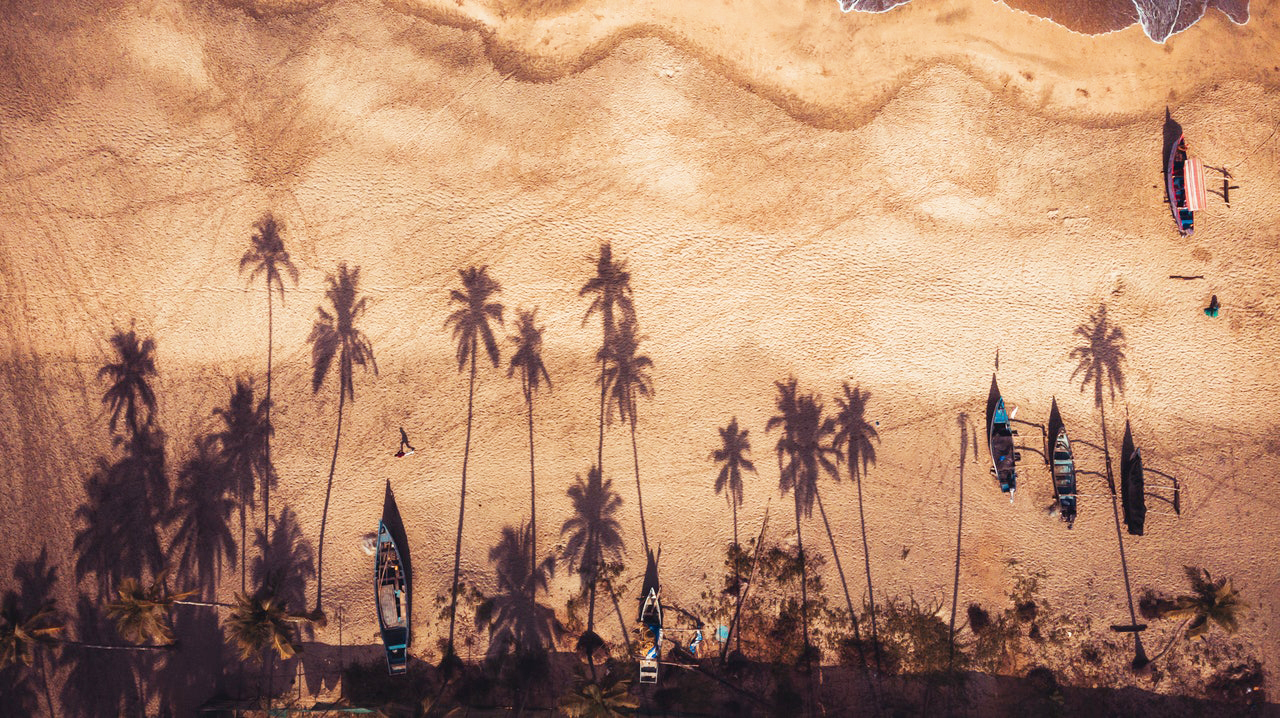
‘I like exploring the intimate space of the family’
I live in Washington on the edge of miles of swamp-oak forest. I have said of my arrival to America, “Sometimes I feel like/I came to the New World for the snow, / to wear my great grandmother’s Japanese coat /brittle from under use in a flat in Bombay.”
On days like today, I will walk alone through these woods, where I have seen “magnificent stags, with brown antlers rising up in the fog, / guarding the undergrowth, as if it is full of diamond fern.”
Growing up in Mumbai, the city’s geography and the weather had a great influence on my coming to writing. My writing soul remains in Mumbai, with spokes out to other cities, like Tokyo, Dublin, New York and Washington. Cities feature prominently in my work because I find their structure reflects our dynamic relationship to nature and privilege, history and contemporary culture. I like exploring the intimate space of the family and how it relates to the physical geography of cities and nature. I think going forward all writers will find that they will be directly or indirectly describing climate change because the earth is changing in front of us on a grave scale.
I love the narrative poem. The poems that particularly interest me as a reader and writer have possibly three attributes. The first is details and characters, like in the title poem of Louise Glück’s National Book Award-winning collection, Faithful and Virtuous Night, and many of Robert Frost’s narrative poems. The second is historical context, where a line in the poem places us within the guardrails of history, like in ‘September 11939’ by WH Auden or ‘Telemachus’ by Ocean Vuong. The third is the lyric poem, expressing the writer's emotions. The elegiac form of the lyric brings both insight and empathy to writer and reader like in Dom Moraes’s ‘A day in Ayodhya’.
C Dale Young’s ‘The Wolf’ is one of my favorite poems. Young says of this long narrative poem, “most of us are afraid of being discursive in poems. We’re afraid if we go on for too long the reader will get bored, the reader will think we’ve lost our minds.” It’s not one of my fears.
Fear
The sea comes into view in the morning light
The brown swell calm today, the distant blue,
metallic against salt-white sky. The promise
of a game of tennis with a new friend,
she relaxes in his car as his young wife
bids them goodbye, red American scarf tied in
a bow at the top of dark curls.
The drive on this southern road is quiet, no cars
pass them; they are far from the chatter of
Margao. This is the Goa you want to fall asleep in
as the red earth delivers green, like Paradise.
They hit the ball and the young man is good enough
to keep a rally going as she pushes away her
thoughts of a wedding planned that is not hers.
The body can mourn without tears.
To come here is to live without troubles — the Jewish-Catholic
couple cook for her each evening — he is teaching photography
to young disabled soldiers who returned from the Kargil War;
she works in the nature reserve, wakes at five
to celebrate dawn with the birds,
then translates old Portuguese documents for a law firm.
They are the people you want to be,
if she wasn’t still at that foolish age when you
think you are carrying all this promise.
When they sip their water at the end of the game
the man says, “Let me show you the river.”
She follows him, slightly disconcerted
but not sure why. Her thoughts come and go –
those of any woman, twenty-six, who
has travelled the world and knows home is a place
near an ocean, though home can be found anywhere.
The path goes downhill, on the way there are
groves of tropical trees and manicured beds
of flowering plants, not in bloom, but healthy
and succulent. Dinner last night was
a chopped salad and fried fish.
The glare is sudden, white light through a clearing.
The hiss of insects. No skyscrapers.
She remembers a high school classmate. He was picked on
because of he didn’t fit in with the jocks, slightly slow,
too much accent. They only shut up in twelfth grade when he went
into the boxing ring in the quad and got badly beaten,
his bloody lip and black eye a trophy. His smile had seemed
brighter after that. He must have seen the Bay that last time
before he jumped. In South Bombay, the water is always close.
Left a note to say he was sorry, he was failing all his classes.
They barely talked about him after—
like the dead not important enough for eternity.
Through the clearing is the Sal’s beach —
the river’s reptilian skin spawns
blisters of river jellyfish at the surface.
A place deep inside injects panic into her bloodstream,
Instinct tells her to run. “We should go,” she says, walking away from
the water, delirious with terror. “I feel sick.” She takes out her phone
deter him from coming close, call anyone.
As she goes, she thinks, don’t offend, but if you stay, he will kill you.
He doesn’t say much in the car and on the drive back
she breathes sharply at each milestone.
“Thank you so much,” she is out of the car,
door closed, safe in her room.
Still tense at dusk, on the balcony with her friends,
She does not bring up their neighbor,
they live here and she is just vacationing.
The night owl is early — raw, hissing —
like fear, it is possessive, needling. She doubts fear – shouldn’t anyone?
Fear of other, hate, rumor mills, ignorant armies
chanting God’s name in vain.
But her own fear, even if she does not like it, she trusts.
It is the why she questions. Was it this man who wished her ill,
or could it have been that this land has too much
history, is soaked in blood?
She asks: “Did anything really bad ever happen near the Sal?”
Without pause, her friend says, “Auto da fé – the Portuguese
Inquisition — thousands of Jews and the new Christian converts
burned at the stake. Started in the 1550s.
Went on for two hundred years.”
Her Jewish husband says, “You Catholics should apologize.”
“You never apologized for Jesus,” she says, and then
laughs and laughs when he grumbles,
“Bloody hell! You just won’t ever let that go!”
The phone rings, a warning bell: turn on the television.
The second plane crashes into the World Trade Center.
“Carpet bomb the motherfuckers who did this,”
he says. Still staring at the screen in disbelief,
she turns her cheek to the monsoon night.
When she looks again, she sees people
jumping from the inferno into their new morning.
God’s armies stand at attention and she hears this word
“Paradise” on both sides, as motive in the end-game,
heaven where the dead go.
Define par•a•dise
•a place where, in a final act of heroism,
people run up into a burning tower to evacuate trapped strangers,
knowing their chance of survival is close to none.
•a place without fear.
•a place where we say enough killing. Here, on earth. Now.
The Rescue
You call out, Birdie, Birdie!
And point, tiny fingers punching the air, shoulders anxious and distraught
Your twenty pounds shifting from foot to foot.
Do you know this trapped bird, my child?
A small brown fledgling, its eyes tightly shut
Caught at the bottom of a narrow, man made pit
Between the tall windows and the boxed stairwell to the library
Exhausted from beating its wings in vain, yet finding no escape
For there is no space here for a sparrow, let alone a baby’s arm.
It is barely developed, its feathers unsure of what full grown color to decide on
Dark brown or beige or cream or tan
Eyes closed with a thin film of pink skin like a fresh scab.
The bird is younger than you are, my child, possibly born this Spring even
When the heavens above could not decide whether to flood or snow or hail or burn or blow or
Make a mockery of the things we build so high to fill the sky.
It has not seen the summer of Washington
The deep hungry heat that beats you, a mallet to your bones.
Into the garden you wander with your kind sister, two small girls
Not old enough to cross a road alone
Yet, you see this bird, and decide it must be saved.
We turn our possessions out of our brown paper bag
On to the wrought iron patio table
Phone, keys, leftover birthday cake for friends
And tear the bag so a piece of it may slide into the space and coax the bird on to it.
Your sister and you assist with full resolve
Guiding the creature with your tiny hands from outside the glass
While I lean over the pit inside the community room tending the paper lift we have designed for it.
After many attempts of trap and fall, climb and flutter
It clambers on and is raised up to safety.
But it is a baby bird and does not yet have the experience of how glass divides
And so it throws itself at the windows, like a Kamikaze, as if intent on death.
The paper comes to the rescue again and shivering, the bird goes to this thing it can trust
Allowing me to scoop it up and caste it out into the courtyard where
It flies and then suddenly drops to the ground like a stone.
Still, inanimate, its eyes lightly shut this time, it waits at the base
Of a tall grove of cherry trees in full bloom.
Petals grace the edges of the flower beds with a skirting of pink
A halo of blossoms soft and sweet.
Here sits the bird, like a statue, even though it is free and can fly
Indeed, just flew to this spot!
So we squat beside it, so curious —
Is it that sometimes we need to pause before we fly again?
Do all things come to a stop when God is found?
We are not content, and must be sure. Not King Canute but fairies in the wood.
So we offer it a leaf, a wand, a prod.
It comes alive like a rocket fired up and goes straight up into the air
Ten stories high, where it sticks to a bare brick wall for so long it is a mysterious thing
Perhaps no heavier than a drop of golden dew.
And then it plummets, a new angel from the sky, perplexing, heavy, and
Vanishes into the undergrowth
After a little dance at our feet, busy as it should be, free.
I laugh and think, if this was the end of the world, my child,
Have we perhaps averted it?
The essay and the poems are part of our Poetry Special Issue (January 2022), curated by Shireen Quadri. © The Punch Magazine. No part of this essay or the poems exclusively featured here should be reproduced anywhere without the prior permission of The Punch Magazine.
More from The Byword
Comments
*Comments will be moderated





